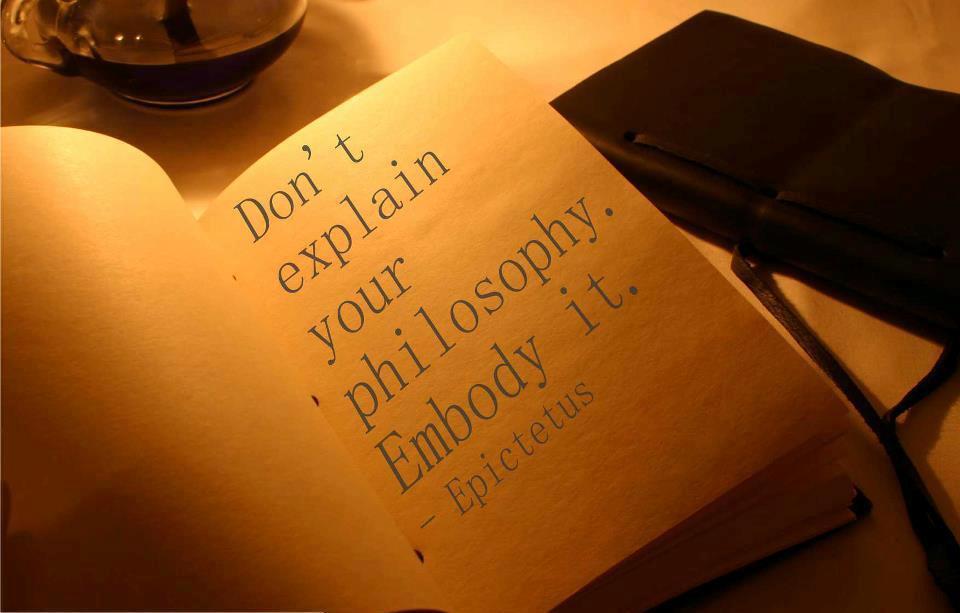Don't explain your philosophy. Embody it

Don't explain your philosophy. Embody it
Philosophy is a subject that has been studied and debated for centuries. It encompasses a wide range of topics, from ethics and metaphysics to epistemology and logic. Philosophers have sought to understand the nature of reality, the meaning of life, and the principles that govern human behavior. However, simply explaining one's philosophy is not enough. To truly understand and appreciate a philosophy, one must embody it.When we embody our philosophy, we are not just talking about it or writing about it. We are living it. Our actions, decisions, and interactions with others reflect our beliefs and values. For example, if someone claims to value honesty and integrity, but consistently lies and cheats in their personal and professional life, their philosophy is not being embodied. On the other hand, someone who consistently acts with honesty and integrity, even when it is difficult or inconvenient, is embodying their philosophy.
Embodying our philosophy requires self-awareness, introspection, and a willingness to live according to our beliefs. It means being true to ourselves and our values, even when it is challenging or unpopular. It requires us to examine our actions and motivations, and to strive for consistency between what we say and what we do.
Embodying our philosophy also involves being open to growth and change. As we learn and experience new things, our beliefs and values may evolve. Embodying our philosophy means being willing to adapt and grow, while still remaining true to our core principles.
In the context of philosophy words, embodying our philosophy means using our words to inspire and uplift others. It means speaking with clarity, honesty, and compassion. It means using our words to promote understanding, empathy, and connection. When we embody our philosophy in our words, we can have a powerful impact on those around us.












 Friendship Quotes
Friendship Quotes Love Quotes
Love Quotes Life Quotes
Life Quotes Funny Quotes
Funny Quotes Motivational Quotes
Motivational Quotes Inspirational Quotes
Inspirational Quotes